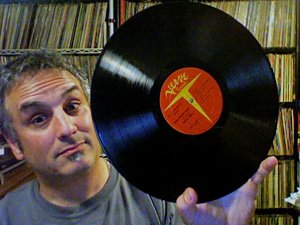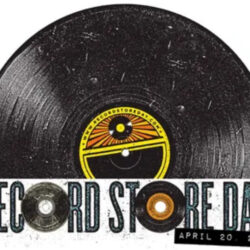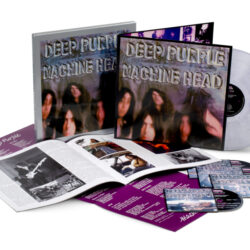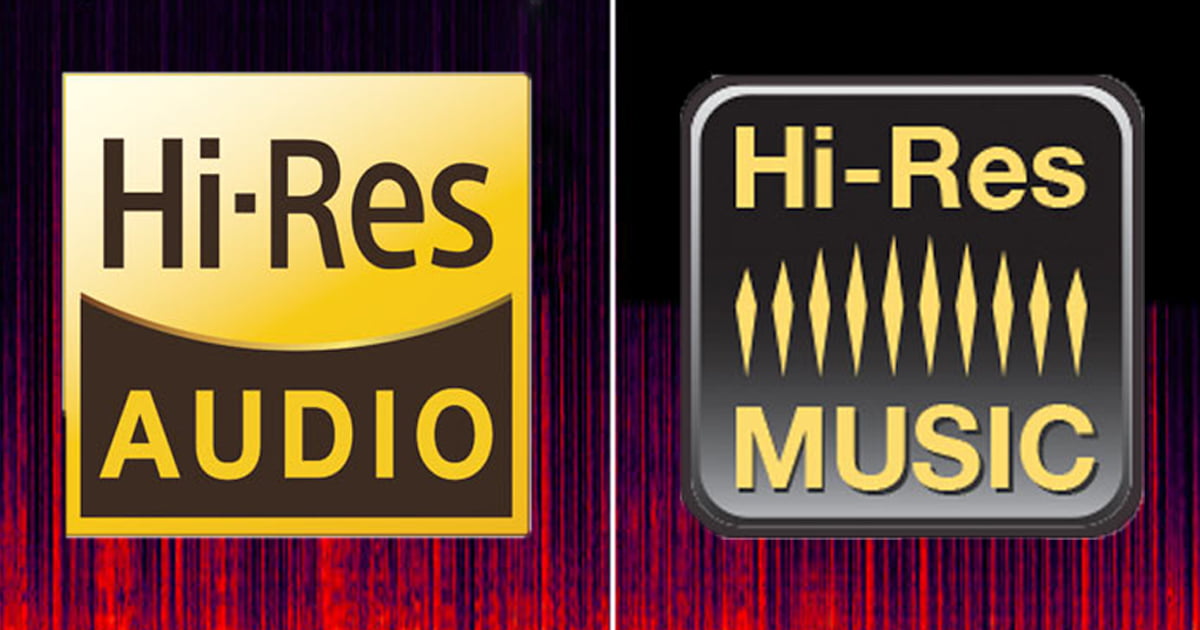It’s the time of year for saving money!
 Nikolai Rimsky-Korsakov did it. Led Zeppelin did it. The Evolution Control Committee did it. Many Rap and Hip Hop artists have done it. Barry Manilow did it. Frank Zappa and The Beatles did it. Greta Van Fleet probably does it, too!
Nikolai Rimsky-Korsakov did it. Led Zeppelin did it. The Evolution Control Committee did it. Many Rap and Hip Hop artists have done it. Barry Manilow did it. Frank Zappa and The Beatles did it. Greta Van Fleet probably does it, too!
What did they do? They all incorprated music that influenced them into their own songwriting. A grand tradition dating back to the earliest days of composing, sounds and ideas get passed down through the ages, changing along the way. There is however a fine line — especially these days — between inspired artists who leverage ideas vs. those who just lift musical passages as their own. Its the difference between tribute and theft.
This isn’t a new thing, but how artists deal with this concept publicly is curious in these litigious times we live in. Today, with the Internet acting as an always-on archive, it is pretty easy to figure out who copped things from whom if there is enough of a similarity. “Whosampled” is a great source for exploring artistic DNA of the sampling world.
 Still, I am amazed how some artists don’t at least acknowledging the source. Some have thankfully been up front about it. Rimsky Korsakov talked about his compositional lifts in his autobiography. Frank Zappa came out of the gate on his 1966 debut citing his influences in the so called “Freak Out List” and over the course of his career performed segments of works by Stravinsky and others directly or in homage. Barry Manilow gave credit to Chopin for the basic melody on his breakthrough epic “Could It Be Magic.” Pete Townshend of The Who named his Baba O’Riley in part for Terry Riley, the composer of the groundbreaking 1964 composition known as “In C.”
Still, I am amazed how some artists don’t at least acknowledging the source. Some have thankfully been up front about it. Rimsky Korsakov talked about his compositional lifts in his autobiography. Frank Zappa came out of the gate on his 1966 debut citing his influences in the so called “Freak Out List” and over the course of his career performed segments of works by Stravinsky and others directly or in homage. Barry Manilow gave credit to Chopin for the basic melody on his breakthrough epic “Could It Be Magic.” Pete Townshend of The Who named his Baba O’Riley in part for Terry Riley, the composer of the groundbreaking 1964 composition known as “In C.”
Respect folks… talkin’ bout respect here. Years ago I remember reading or seeing an interview with Jerry Garcia explaining how he proactively gave Elizabeth Cotton credit for her 1966 song “Shake Sugaree” when he learned it existed (and had probably influenced lyricist Robert Hunter for their like-named song). That’s how you do it, kids.
 Unfortunately, legendary rockers Led Zeppelin apparently got into hot water by not initially giving credit to writers like Willie Dixon (“You Need Love“) and Jake Holmes (“Dazed & Confused“). Accidents happen of course so The Flaming Lips gave Cat Stevens credit on “Fight Test” (from their brilliant album Yoshimi Battles The Pink Robots) when it was deemed just a bit too close to his “Father & Son.” Beatle George Harrison subconsiously got too close to The Chiffon’s hit “He’s So Fine” with his smash solo hit “My Sweet Lord.”
Unfortunately, legendary rockers Led Zeppelin apparently got into hot water by not initially giving credit to writers like Willie Dixon (“You Need Love“) and Jake Holmes (“Dazed & Confused“). Accidents happen of course so The Flaming Lips gave Cat Stevens credit on “Fight Test” (from their brilliant album Yoshimi Battles The Pink Robots) when it was deemed just a bit too close to his “Father & Son.” Beatle George Harrison subconsiously got too close to The Chiffon’s hit “He’s So Fine” with his smash solo hit “My Sweet Lord.”
Anyhow, all this came to mind when I recently saw a performance by San Francisco’s fine New Century Chamber Orchestra (NCCO) with its current Music Director, Violin virtuoso Daniel Hope. The NCCO were wonderful, vigorous when they needed to rock yet delicate in an instant as the composition required. Mr. Hope was inspiring, taking time to carefully and charmingly introduce each piece for the audience, putting the significance of each work into perspective.
 Particularly, he was showing how these works performed were Recomposed along the way by other writers — that was the underlying theme for the whole concert. Selections included Benjamin Britten’s (new ending) version of Robert Schumann’s “2nd Movement from the Violin Concerto” — you can find the original streaming on Tidal in MQA format at 96/24 in one of its earliest recordings by Daniel Hope’s mentor and friend, the great Yehudi Menuhin. They also performed Ralph Vaughan Williams’ ever-gorgeous “Fantasia on a Theme by Thomas Tallis.”
Particularly, he was showing how these works performed were Recomposed along the way by other writers — that was the underlying theme for the whole concert. Selections included Benjamin Britten’s (new ending) version of Robert Schumann’s “2nd Movement from the Violin Concerto” — you can find the original streaming on Tidal in MQA format at 96/24 in one of its earliest recordings by Daniel Hope’s mentor and friend, the great Yehudi Menuhin. They also performed Ralph Vaughan Williams’ ever-gorgeous “Fantasia on a Theme by Thomas Tallis.”
The highlight was composer Max Richter’s reinvention of Vivaldi’s The Four Seasons (titled Recomposed By Max Richter: Vivaldi, The Four Seasons). To my mildly trained classical ear, this sounded mostly like a new music, leaning more toward minimalism and other modern cinemascopic vistas.

Mr. Hope positioned the work as an “homage,” explaining how it is not meant to take away from the Vivaldi’s original composition. Instead, it is more of a new complementary way to enjoy those sonic flavors and tonal colors. Brian Eno did something akin to this in 1975 on his Discreet Music album which included “Three Variations on the Canon in D Major by Johann Pachelbel.”
Still I wasn’t 100 percent sure I should try to review this as Recomposed By Max Richter: Vivaldi, The Four Seasons was released in 2012. But after discovering that another journalist friend who is deeply into classical music had not heard of Mr. Hope, I figured this was warranted. Better late than never!
At the concert I bought the CD + DVD of Mr. Hope performing Recomposed By Max Richter: Vivaldi, The Four Seasons with composer Max Richter (on a Mini Moog!) and The Konzerthaus Kammerorchestra of Berlin. Right there on the package, the title reference points are clear: “Recomposed by Max Richter” underscored by “Vivaldi: The Four Seasons.” That is how you do it folks.
 They could have easily called it their own but took the high road. This music is pretty distinctive and, if anything, it sounds more akin to Philip Glass and perhaps Terry Riley — particularly Pete Townshend’s own tribute, “Baba O’Riley” which he ultimately recorded in an orchestral version for his Lifehouse project — than Vivaldi. The one clearly Vivaldi-esque moment is chopped up into quirky time signatures that border on prog rock.
They could have easily called it their own but took the high road. This music is pretty distinctive and, if anything, it sounds more akin to Philip Glass and perhaps Terry Riley — particularly Pete Townshend’s own tribute, “Baba O’Riley” which he ultimately recorded in an orchestral version for his Lifehouse project — than Vivaldi. The one clearly Vivaldi-esque moment is chopped up into quirky time signatures that border on prog rock.
Recomposed By Max Richter: Vivaldi, The Four Seasons is streaming on Tidal in 24-bit, 44.1 kHz MQA (Master Quality Audio) format. It sounds real nice and a bit warmer than the CD (which itself sounds real good — orchestral music tends to faire pretty well for me on CD even though I certainly like my classical SACDs and Blu-rays when available). There are also several DJ-type remixes filling out the disc, some of which work better than others.
The DVD of Recomposed By Max Richter: Vivaldi, The Four Seasons features a lovely live in-the-studio performance with very high production values. Creative lighting here borders on MTV-esque and dreamy projection overlays remind me at times of Sigur Ros’ Jonsi in concert.
 The 48 kHz standard DTS 5.1 surround sounds pretty solid with a good sense of room ambiance yet keeping a mostly front-facing soundstage. The Stereo LPCM option is 48kHz, 16-bit. The picture quality is good but it would be nice to have this in higher resolution on Blu-ray someday. Until then this is more than adequate.
The 48 kHz standard DTS 5.1 surround sounds pretty solid with a good sense of room ambiance yet keeping a mostly front-facing soundstage. The Stereo LPCM option is 48kHz, 16-bit. The picture quality is good but it would be nice to have this in higher resolution on Blu-ray someday. Until then this is more than adequate.
Recomposed By Max Richter: Vivaldi, The Four Seasons is clearly a labor of love. You can hear it in Mr. Richter’s music. You can feel it in the heartfelt performances by Mr. Hope.
You should listen.









